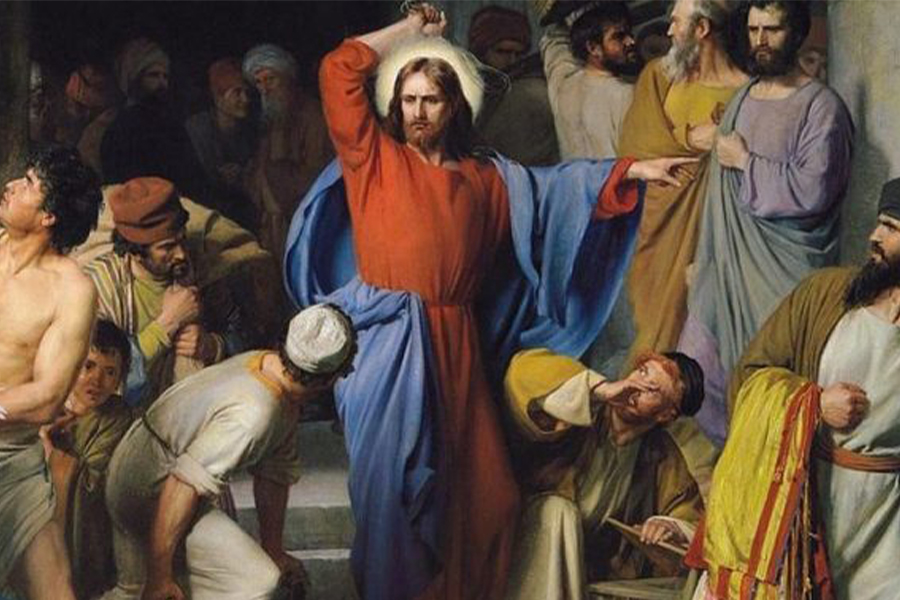
Spiritual Sacrifices
03-06-2021Weekly ReflectionDr. Scott HahnJesus does not come to destroy the temple, but to fulfill it (see Matthew 5:17) - to reveal its true purpose in God's saving plan. He is the Lord the prophets said would come - to purify the temple, banish the merchants, and make it a house of prayer for all peoples (see Zechariah 14:21; Malachi 3:1-5; Isaiah 56:7). The God who made the heavens and the earth, who brought Israel out of slavery, does not dwell in sanctuaries made by human hands (see Acts 7:48; 2 Samuel 7:5). Nor does He need offerings of oxen, sheep, or doves (see Psalm 50:7-13).
Notice in today's First Reading that God did not originally command animal sacrifices - only that Israel heed His commandments (see Jeremiah 7:21- 23; Amos 5:25). His law was a gift of divine wisdom, as we sing in today's Psalm. It was a law of love (see Matthew 22:36-40), perfectly expressed in Christ's self-offering on the cross (see John 15:13) This is the "sign" Jesus offers in the Gospel today - the sign that caused Jewish leaders to stumble, as Paul tells us in the Epistle. Jesus' body - destroyed on the cross and raised up three days later - is the new and true sanctuary.
From the temple of His body, rivers of living water flow, the Spirit of grace that makes each of us a temple (see 1 Corinthians 3:16), and together builds us into a dwelling place of God (see Ephesians 2:22). In the Eucharist we participate in His offering of His body and blood. This is the worship in Spirit and in truth that the Father desires (see John 4:23-24). We are to offer praise as our sacrifice (see Psalm 50:14,23). This means imitating Christ - offering our bodies - all our intentions and actions in every circumstance, for the love of God and the love of others (see Hebrews 10:5-7; Romans 12:1; 1 Peter 2:5).
A service of the St. Paul Center for Biblical Theology www.SalvationHistory.com.
BACK TO LIST